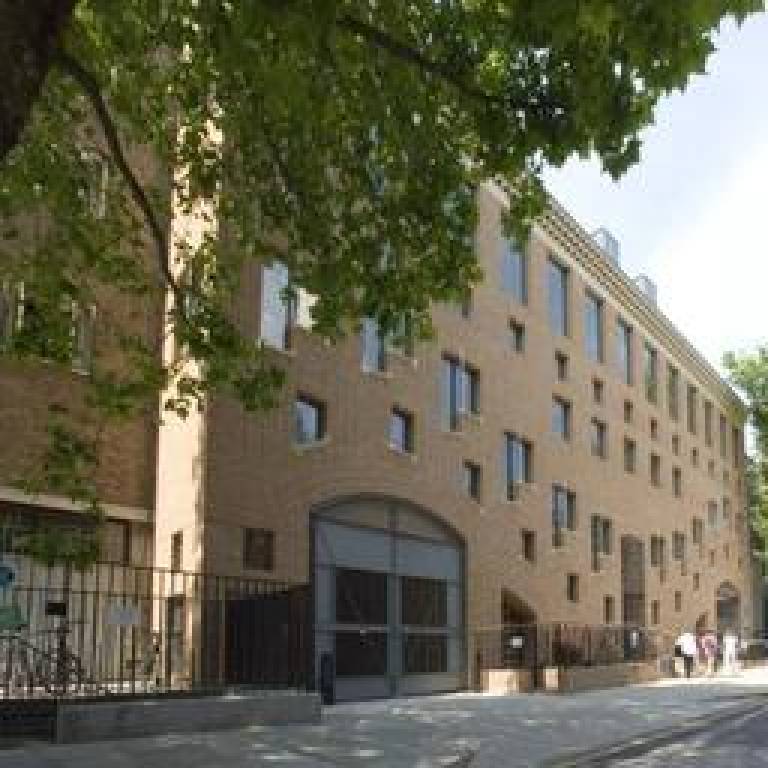Drinking and drunkenness in Eastern Europe: UCL alumni talk
26 March 2010
Links:
 ssees.ucl.ac.uk/" target="_self">UCL
School of Slavonic & East European Studies
ssees.ucl.ac.uk/" target="_self">UCL
School of Slavonic & East European Studies
Dr Christopher Gerry explained the seven vodka rules to follow in Eastern Europe at a UCL alumni reunion on 18 March.
In a stimulating talk on drinking practices in Eastern Europe, Dr Christopher Gerry, Senior Lecturer in Political Economy at the UCL School of Slavonic & East European Studies (UCL SSEES) described to more than 100 SSEES alumni the important role that alcohol plays in the cultures and societies of Eastern Europe.
His Eastern European 'travel guide' included the seven vodka rules:
- Never mix it
- Cold but no ice
- In large measures
- Bottoms up: emptying the glass
- With 'zakuski' (Eastern European hors d'oeuvres)
- With a toast (preferably elaborate)
- Much and for long: 'one for the road'
By recalling the richness of toasting rituals, Dr Gerry painted a picture of the myriad complexities that make drinking and drunkenness powerful and unavoidable aspects of social life across the region.
He went on to explain the darker side of the elevated position alcohol holds in Eastern Europe, citing alarming statistics that indicate that the substance lies at the heart of the health crisis in Russia. Alcohol misuse may be responsible for up to one-third of all deaths currently occurring in the country. Life expectancy for males in Russia is almost 15 years below the Western Europe average, and in 2006, overall life expectancy in the country was less than 67 years - lower than it had been at the end of the 1950s, he told a rapt audience (themselves aged between 26 and 95). In 2009 President Medvedev called Russia's alcohol problem a "national disgrace".
Dr Gerry said: "In conversation afterwards, many alumni related their own stories of the elaborate toasting and celebrations they had enjoyed, the wonderful and colourful array of unique, regional drinks encountered, but also the palpable damage to human wellbeing wrought by alcohol misuse and so often visible from the Balkans to the Baltic, and from the Caucasus to Russia."
Robert Ward, who graduated from the School in 2008, said: "It was really nice to go back to SSEES and see some familiar faces. The talk itself was especially enjoyable and very informative. I would definitely attend a SSEES alumni event again in the future."
Another alumna who thoroughly enjoyed the event was 95-year-old Vivian Pixner (UCL SSEES 1967). Vivien attended the School in her early forties, having studied Russian at weekly evening classes for 15 years. Following a year-long stint teaching English in Bulgaria after her degree, she returned to London, where she taught Russian and Bulgarian for the rest of her career. For many of the alumni present who remembered her from their time at SSEES, she was the star attraction of the evening.
Image: The UCL School of Slavonic & East European Studies, on Bloomsbury's Taviton Street
UCL context
UCL SSEES graduates interested in future alumni activity should email Alumni Relations. UCL Alumni Relations provides a comprehensive programme of events, benefits, services and communications for UCL's 130,000 alumni, to help them stay connected to their university long after they have graduated.
UCL SSEES alumni based in Moscow are invited to join a new group that plans to have an informal gathering every couple of months. If you are interested in joining, please contact Fiona Wood (UCL SSEES 2005).
 Close
Close

